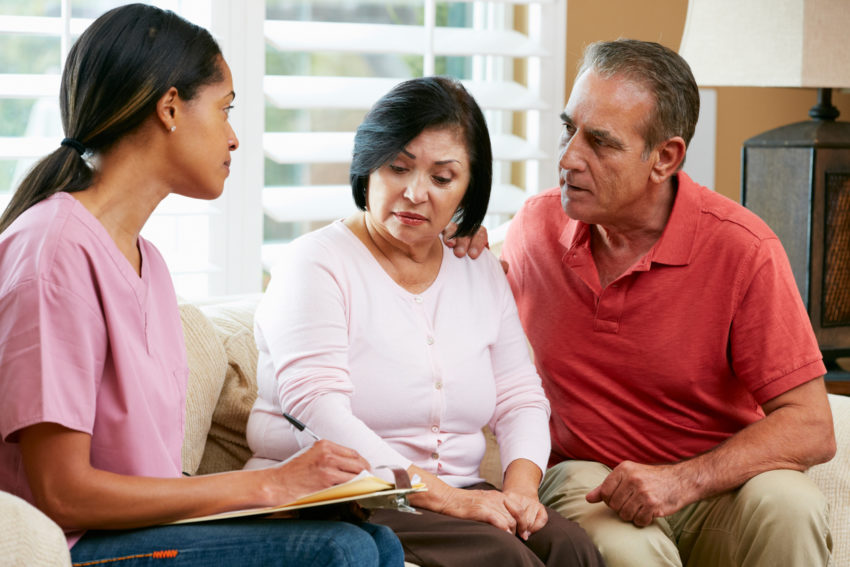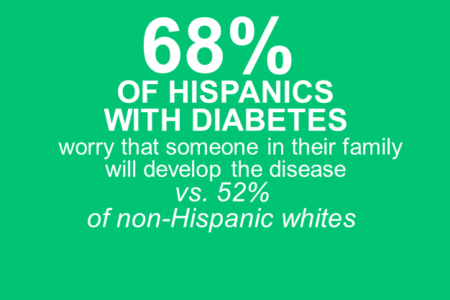
Share On Social!
Late onset diabetes may be a sign of pancreatic cancer in Latinos and African-Americans, according to a new study.
The study, published in the Journal of the National Cancer Institute, linked recent-onset diabetes with a 2.3-fold greater increase in risk of pancreatic cancer than long-standing diabetes.
Latinos have higher risk of developing type 2 diabetes and pancreatic cancer than their peers.
Study Results & Implications
Pancreatic cancer is one of the most fatal cancers. It has a five-year survival rate of only 8%. This is because eight in 10 pancreatic cancer patients get diagnosed at a late stage.
Most diabetes patients with pancreatic cancer are diagnosed with diabetes less than three years before the cancer diagnosis.
Among pancreatic cancer patients undergoing the surgical operation often used to try to remove pancreatic tumors, over half of patients with recent-onset diabetes have no diabetes post-operatively. Researchers have observed no effect in those who have had diabetes for more than three years.
The new study showed that people diagnosed with diabetes between ages of 65-85 were more likely to develop pancreatic cancer within three years, compared with those who had no diabetes.
Furthermore, the association between recent-onset diabetes and pancreatic cancer declines with aging.
The results also found African Americans were three times more likely to develop pancreatic cancer within three years of a diabetes diagnosis. Latinos were four times more likely.
The authors also examined the link between late-onset diabetes and other cancer types. No relationship was found.
“Patients with recent-onset diabetes who go on to develop pancreatic cancer should be studied for additional risk predictors that could help diagnoses patients earlier and improve survival,” according to the American Journal of Managed Care blog.

Tips to Lower Your Risk of Cancer and Diabetes
Diet is implicated in 529,999 deaths from heart disease, stroke, diabetes, cancer, and other diseases in 2016. This is a big deal for Latinos, who often struggle with local access to healthy food, according to a Salud America! research review.
To reduce the risk of Type 2 diabetes and cancer, adults should adopt healthy habits.
Maintain a healthy weight. If you are overweight, even losing 7% of your weight (15 pounds if you weigh 200 pounds) can make a big difference.
Eat a healthy diet. Chose diet with plenty of fresh vegetables eat nuts, poultry, or fish. LIMIT red meat and processed meat. Managing your weight and eating a balanced diet may bolster your body’s defenses against cancer and diabetes. Choose whole grains over processed carbohydrates. Drink water or milk over sugary drinks.
Stay Active. Work your muscles to improve their ability to absorb insulin. Walking briskly for 30 minutes a day can help reduce the risk of diabetes. The American Cancer Society recommends that healthy adults participate in a minimum of 75 to 150 minutes of moderate to vigorous exercise spread throughout the week to maintain health and reduce the risk of disease, including cancer.
Quit Smoking. The body often can repair damage from harmful behavior like smoking. But it requires stopping the harmful behavior. Quitting smoking before age 40 reduces risk of death from a smoking-related cause by 90 percent. Try the Quitxt text-messge program in English or Spanish, created by the Salud America! researchers at UT Health San Antonio.
Consume alcohol only in moderation. More than one alcoholic drink a day for women or two for men increases the risk for both diabetes and cancer.
Get regular recommended cancer screenings. Screenings can help detect cancers at their earliest and most treatable stages. Ask your doctor when you should have important screenings, and schedule them.
These good habits can prolong life and greatly enhance quality of life as we age.
Community Education
Campaigns also can help spread the word.
San Antonio recently took part in Diabetes Alert Day in March 2017.
A nurse built a diabetes self-management education program in the Coastal Region of North Carolina.
Legendary Spanish-language TV host Don Francisco helped launch a new campaign to dispel diabetes and insulin treatment myths.
What can you do?!
Explore More:
Healthy Families & SchoolsBy The Numbers
142
Percent
Expected rise in Latino cancer cases in coming years



